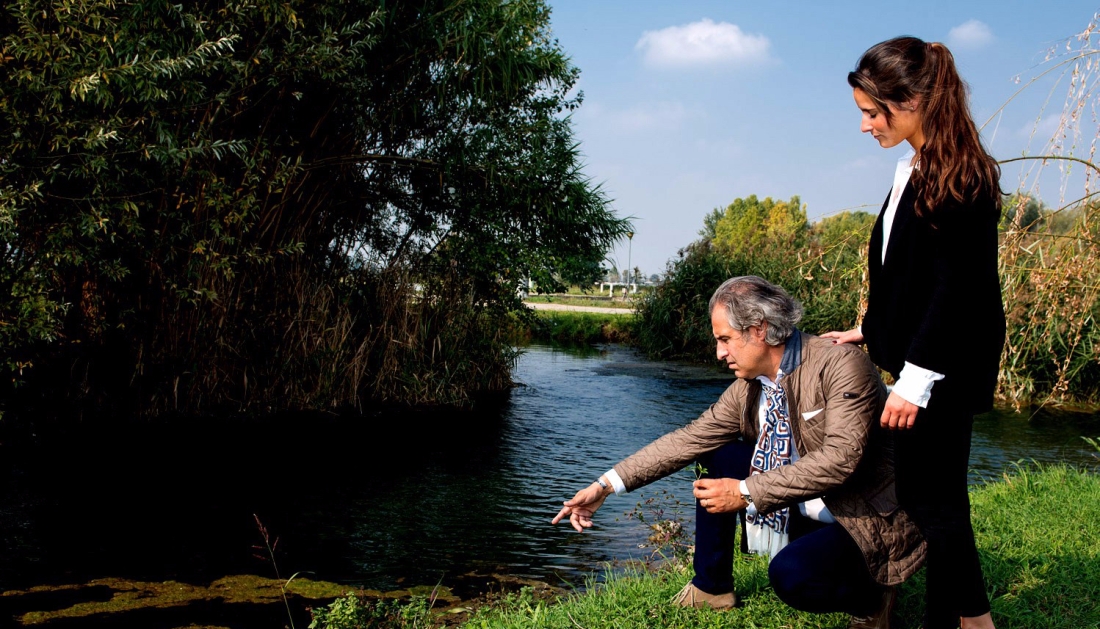For more than 7 years, sustainability is the key ingredient of Imperial Heritage Caviar. The family owns the Caviar House in the province of Antwerp and has recently received the Friend of The Sea Award for their continuous search for sustainable aquaculture farming. In today’s article we will take a look at the different ways the company strives to balance nature and entrepreneurship.
Working with endangered species brings great responsibility. Therefore, sustainable seafood is part of the company’s philosophy. Since 1998, the sturgeon has been listed by the Washington Convention as species in danger of extinction. Together with their partners, Imperial Heritage Caviar has been fighting every day in order to safeguard this endangered species. The entire manufacturing facility is certified “BRC” and “IFS high level” (cf. Infra), which is quite unique in the world of sturgeon breeders and caviar producers.

Imperial Heritage Caviar’s sustainable entrepreneurship is based upon three pillars, namely: ecological, social and economic sustainability. In their business model they attempt to combine various initiatives on all three pillars. The quest for sustainability was not only the result of the company’s own beliefs. They also found that, over the years, more and more clients tend to search for biological products. The company sees sustainability as essential to ensure a future for the current and next generations.

In order to achieve their goal, Imperial Heritage sets some high criteria. First, as sustainable farming is extremely important for the company, the sturgeons only swim in 100% Natural Spring Water. Moreover, the water is constantly being refreshed in order to avoid diseases and contamination. Before the water finds its way to agriculture it gets filtered. Secondly, all the sturgeons swim in open air lakes. The bottom of the lakes is made out of stones and boulders in order to recreate the natural habitat for the sturgeons. The result is a clean culture environment that is constantly monitored with respect to nature’s balance.
The company strictly works with certified partners. Hygiene and sustainability are key in the selection process. Some of the certificates that are required are: CITES, BRC and IFS “High Level”.
To raise awareness around sustainable aquaculture farming, Imperial Heritage proudly explains the meaning of the Friend of The Sea award to its customers. Friend of the Sea is a non-profit non-governmental organisation that strives to make sustainability reality. The aquaculture farms that carry the label renounce the use of growth hormones, respect the waters parameters and treasure the habitat of the fish.

One of the company’s partners is an aquaculture farm owned by a steal company. The steal company wanted to apply sustainable measures in order to make a bigger contribution to the environment. This resulted in an initiative where the heat generated by the production process is recycled to heat the fish basins. This is a great example of how different industries can cooperate to drive sustainable initiatives with both business and environmental values in mind.
Another initiative comes from the fact that demand historically has diminished the natural pool of sturgeons. Some of the farms that the company works with are cultivating native sturgeons that are not suitable for consumption, like the Belugaand the Naccari, and release them in their natural habitat to rebalance the ecosystem.
Due to a competitive market where many players are focused on reducing their costs, the biggest challenge for Imperial Heritage is to stay true to its core values. Therefore, it will be essential to generate more awareness amongst consumers about the origin of the product as well as the production process.
by Thomas Goossens (antwerpmeetssustainability@zoho.com)
